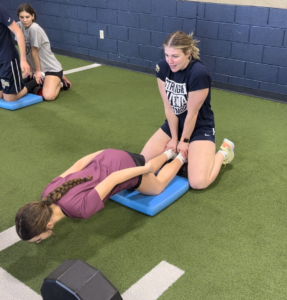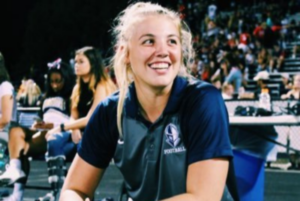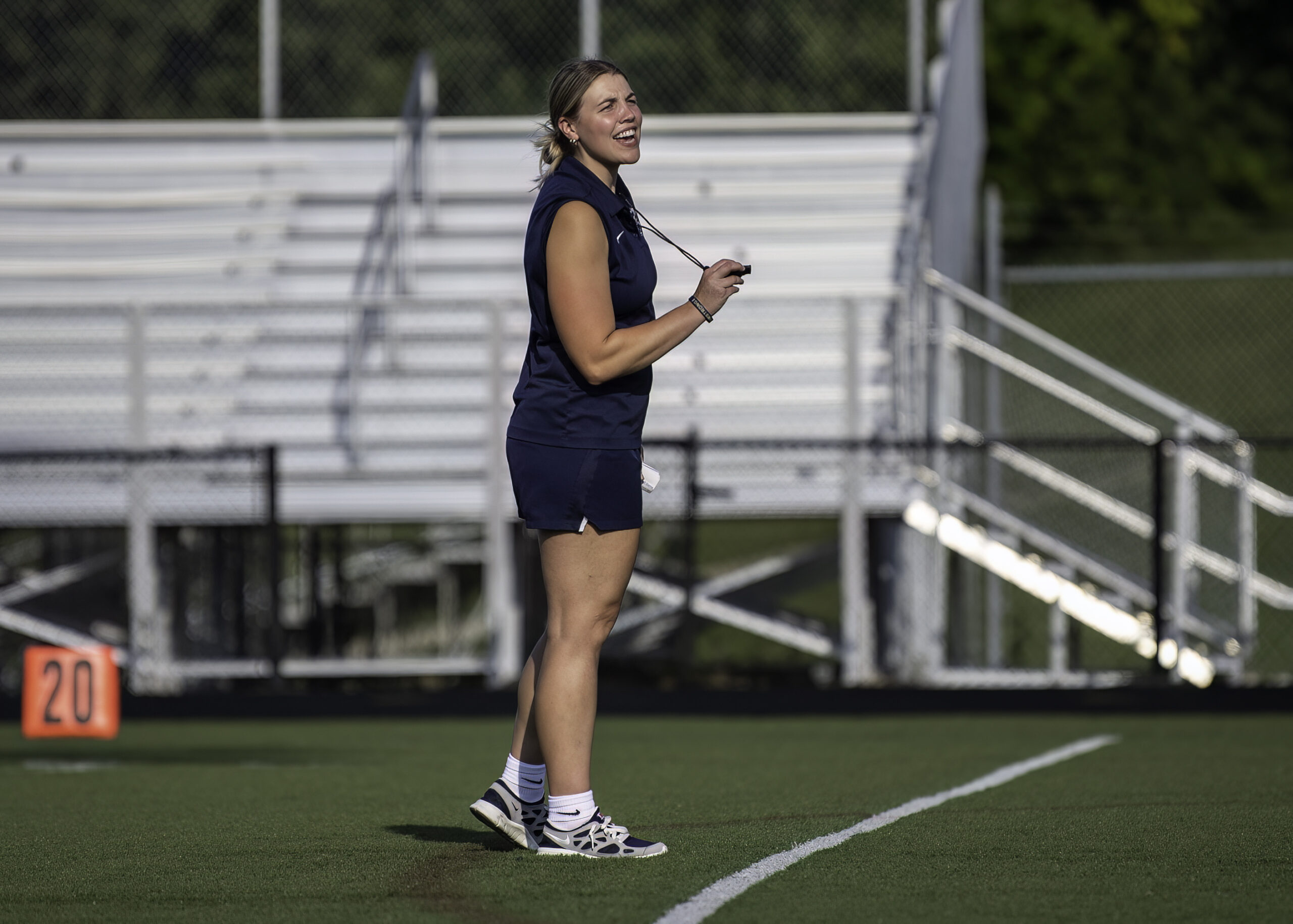Introduction
Our latest student story features Maddie Diestel, an Assistant Strength & Conditioning Coach at High School level. Maddie is a recent graduate of our MSc in Performance Coaching.
Below, Maddie shares her journey, experiences, and the lessons she’s learned during her coaching career and time at Setanta College.
Background and Interests
Having been involved in athletics and many other sports from a young age, Maddie’s interest in strength and conditioning began to grow once she started playing soccer at college level.
“It was not until college that I had a qualified Strength & Conditioning Coach that made a program fit to me and the sport I played. I enjoyed being on the athlete side of programming, I knew I could make an impact being on the coaching side. I currently am an Assistant High School Strength & Conditioning Coach, working with 27 varsity sport programs.”
Lessons from Studying with Setanta
At NHSSCA National Conference in 2021, Maddie received what she describes as a ‘life-changing’ opportunity to study the MSc in Performance Coaching with Setanta College. Having recently graduated this year, she outlines the main learnings she has gained from the programme.
“1) Focus on the individual: I work with upwards of 300 student-athletes a day. No matter what team I am working with, I make it a point to speak to each of them individually during the session. Sometimes it includes words of encouragement, areas of improvement, how to help those areas, or a just a question about them.
2) Use data that is beneficial to your program: I have opened my eyes to the use of data for the success of my student-athletes. Do not overwhelm yourself with too many areas to look at. Take time to evaluate and distinguish the key areas for your team that you want to focus on, and work with that!
3) Listen to your athletes: Their health and well being are extremely important. If I can help in any way of their athletic development, I will. Sometimes that means adjusting the workload in the weight room, depending on how practice and competition has been.
4) Never stop learning: Be a sponge and learn from research and coaches around you. We are in a field that is forever changing, sometimes change is right for your program and sometimes it is not. Every year, students graduate and new freshman enter the building. This leaves us with a new opportunity to improve with a new group of student-athletes. Year by year, the goals of a team may change, adjusting the program I provide.”
Working with Student-Athletes
Working with such a large amount of student-athletes can be challenging, but Maddie utilises some strategies to ensure she is supporting these athletes.
 “Get to know them and be yourself. I often keep my office open for students to eat lunch in, come in during free periods and even stay late and let it be a place to do homework. I ask questions to get to know each of my students on a personal level, to gain trust. All improvements made by these students are ones to congratulate them on. It helps build their confidence and trust in you as the coach.”
“Get to know them and be yourself. I often keep my office open for students to eat lunch in, come in during free periods and even stay late and let it be a place to do homework. I ask questions to get to know each of my students on a personal level, to gain trust. All improvements made by these students are ones to congratulate them on. It helps build their confidence and trust in you as the coach.”
Maddie also maintains a number of principles throughout her coaching practice.
“1) Technique used over weight moved. I value the ability to move through a pattern and master it, before progressing and/or adding resistance. I work with students that are entering the age of puberty, making long term athletic development that much more important.
2) Consistency & Dedication are the keys to success. The best way to get better at something is to practice it. Continually choosing to the come to lifting sessions twice a week with the goal of improving is a mindset I try to instill in my students.
3) Standards of a Champion. I keep my standards high because I expect my student-athletes to do the same. Trust, respect and championships are earned. The weight room is a place where the championship culture is built. It is where the brotherhood/sisterhood is formed.”
Future Aspirations
Looking to the future, Maddie outlines how she hopes to continue progressing in her career.
“I am currently an Assistant Strength & Conditioning Coach at the high school level, but would love to be a Director of Strength & Conditioning in the near future! In addition, I plan to use my resources to spread the word about the importance of high quality S&C coaches and how they can positively impact student-athletes across the world!”
She also has some advice for anyone seeking to begin a career in S&C.
“1) Hands on experience is more valuable than the books! Being fully immersed into the S&C field will help you develop immensely as a coach.
2) Network! It has been so helpful to talk to other S&C coaches from other schools/states to gain insight on their situation and how they run their programs.”
For more information on the Setanta College MSc in Performance Coaching, visit here.


Maddie is a woman to be proud of! She has always supported others as she has been supported by her family and friends. She is indeed a gift!!❤️